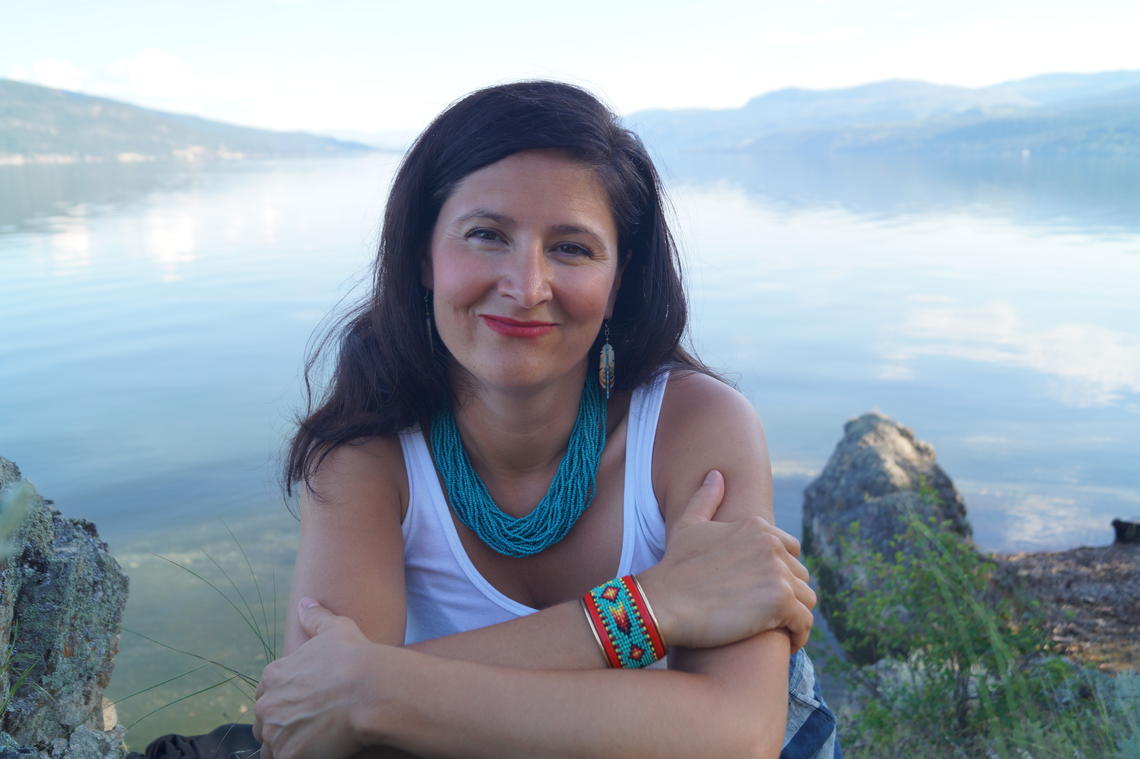
Jennifer Leason, an assistant professor in the Department of Anthropology and Archaeology.
Faculty of Arts
March 26, 2018

Jennifer Leason, an assistant professor in the Department of Anthropology and Archaeology.
Faculty of Arts
In a career path that saw her working, by turns, in social services, mental health services and correctional services at a maximum security prison, Jennifer Leason witnessed it time and time again: the troubling overrepresentation of Indigenous people — her people — in these sectors, the result of historical, social, political and economic inequities.
But it was a case of under-representation that spurred on her current research project, for which the newly hired assistant professor in anthropology has just received a CIHR (Canadian Institutes of Health Research) New Investigator’s Award in Maternal-Child and Reproductive Health.
The project began when Leason was completing her doctorate at the University of British Columbia (Okanagan). In 2009, the Public Health Agency of Canada and Statistics Canada had released the Canadian Maternity Experiences Survey (MES) which examined women’s prenatal, labour and birth, and six months post-partum experiences. Through secondary data analysis, Leason discovered the MES excluded Indigenous women living on reserves, as well as incarcerated women and women whose children had been apprehended by social services at the time of the survey — areas where Indigenous women were, again, disturbingly overrepresented.
Further, Leason found that Indigenous women who did participate in the MES had experienced higher levels of stressors than most non-Indigenous women related to adverse social conditions, as well as higher rates of intimate-partner violence, post-partum depression, nutritional issues, sudden infant death syndrome, maternal smoking, and exposure to second-hand smoke.
“All of this contributes to the maternal-child health disparities we’re seeing in Indigenous populations, compared to non-Indigenous populations,” says Leason. “The reality is these health disparities, based on poor social determinants, are not okay.”
Leason’s response to these findings was to begin conducting her own survey — more comprehensive, culturally relevant and inclusive than the MES — focused on the real maternity experiences of Indigenous women. By engaging Indigenous women, their families, birth partners, communities and Elders, Leason hopes to better pinpoint disparities and inequities within maternity and child health support, while also highlighting the positive narratives of strong Indigenous women. This is crucial to improving support in these areas, she says.
While her current focus is on British Columbia, where her work began, her long-term goal is to conduct similar research with Indigenous people in Alberta, and, at some point, nationally.
“When I was doing my PhD I had real, kitchen-table conversations with Indigenous women — my sisters, my community, my people,” says Leason. “What I heard is that pregnancy is an ideal point of intervention. Women in unhealthy situations won’t necessarily make the changes they need to make in their lives when it’s just for themselves. But when there’s a baby involved and motherhood is at bay, they’re more likely to make those changes, for their infants and children, if not for themselves. It’s such an opportune time. I heard that again and again when talking to these warrior women. ‘I want more for my children.’”
Leason adds: “It’s difficult to be vocal about some of these findings, for fear of making waves. But I think the only way to make change is to find our voice and speak out. One thing I heard from so many of the women I spoke to was, ‘If telling my story can help someone else, then yes, tell my story.’ That’s why telling these stories is so important.”